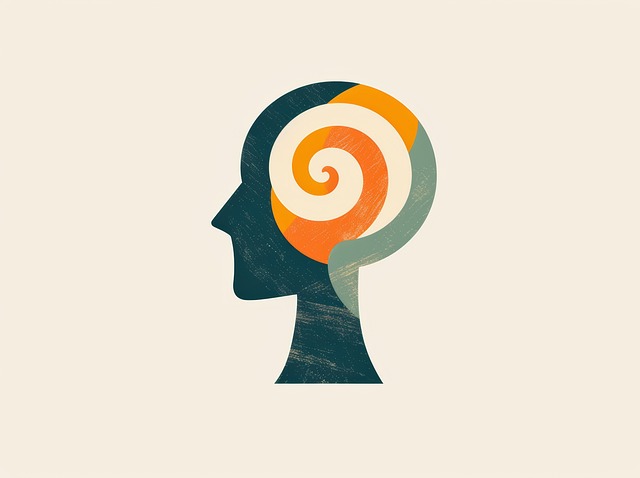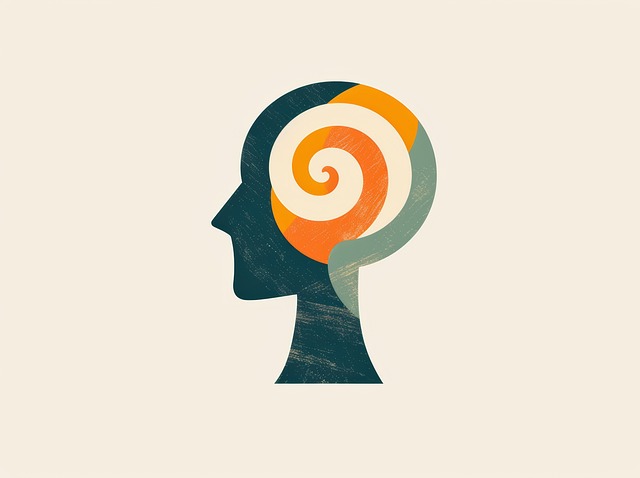Mental healthcare professionals must be culturally sensitive to provide effective therapy for adults from diverse backgrounds, including considerations around religion, language, immigration status, and socioeconomic factors. In bariatric evaluations, this means understanding unique dietary requirements tied to cultural practices or religious beliefs. Tailoring care to these individual needs fosters a safe and trusting environment, improving treatment outcomes. Incorporating culturally sensitive practices, such as mood management guidance aligned with a client's identity, enhances patient engagement and overall therapeutic success. Effective communication and cross-cultural sensitivity training are essential for therapists to create inclusive environments where diverse identities feel respected and understood.
In the diverse landscape of mental healthcare, cultural sensitivity is a game-changer. This article explores the intricate relationship between cultural diversity and mental well-being, focusing on strategies to enhance therapy outcomes for adults. From understanding the impact of cultural nuances in bariatric evaluations to adopting effective communication tactics, mental health professionals can navigate complex cross-cultural interactions. We provide practical guides and insights to foster culturally competent practices, ensuring inclusive care that addresses diverse needs, especially in specialized areas like therapy for adults and bariatric evaluations.
- Understanding Cultural Diversity in Mental Healthcare
- The Impact of Cultural Sensitivity on Therapy Outcomes for Adults
- Bariatric Evaluations: Addressing Cultural Considerations
- Effective Communication Strategies for Cross-Cultural Mental Health Care
- Building Culturally Competent Practices: A Guide for Mental Health Professionals
Understanding Cultural Diversity in Mental Healthcare

In today’s diverse society, mental healthcare professionals must embrace cultural sensitivity to provide effective therapy for adults from various backgrounds. Cultural diversity extends beyond race and ethnicity; it encompasses a wide range of factors including religion, language, immigration status, and socioeconomic status. For example, a client undergoing bariatric evaluations may have unique dietary needs tied to their cultural practices or religious beliefs, which can significantly impact their mental health journey.
Understanding these nuances is crucial in promoting mental wellness and stress management. Professionals should be equipped with the knowledge and skills to deliver culturally competent care, ensuring that services are accessible and tailored to individual needs. By incorporating stress reduction methods sensitive to diverse cultures, healthcare providers can foster an environment of safety and trust, ultimately enhancing treatment outcomes for all clients, regardless of their background.
The Impact of Cultural Sensitivity on Therapy Outcomes for Adults

The integration of cultural sensitivity into mental healthcare practices has profound implications for therapy outcomes among adults. By recognizing and understanding an individual’s cultural background, therapists can tailor their approach to better address the unique needs and challenges faced by their clients. This is especially relevant in diverse societies where people from various ethnic, racial, religious, or socio-economic backgrounds seek therapy. For instance, a person from a certain cultural group might have specific beliefs about mental health and illness that differ significantly from mainstream perspectives, influencing how they express distress or respond to treatment.
In the context of bariatric evaluations—which often involve complex psychological considerations—cultural sensitivity becomes even more critical. Effective therapy for adults in this domain requires not only addressing physiological aspects but also providing guidance on mood management and mental wellness journaling exercises that resonate with an individual’s cultural identity. Incorporating these elements can lead to improved patient engagement, higher treatment adherence rates, and ultimately better therapeutic outcomes. Thus, ensuring that therapists are equipped with the knowledge and skills to navigate cultural differences is essential within the broader framework of cultural sensitivity in mental healthcare practice.
Bariatric Evaluations: Addressing Cultural Considerations

Bariatric evaluations in mental healthcare require a nuanced approach that considers cultural context and diversity. Many individuals seeking therapy for adults with bariatric issues come from various ethnic backgrounds, each bringing unique perspectives and challenges related to food, body image, and health. For instance, cultural practices and beliefs around eating, fasting, and body size can significantly influence an individual’s relationship with food and their overall mental well-being. Mental health professionals must be adept at navigating these complexities, ensuring that evaluations are culturally sensitive and effective.
Understanding the psychological impact of bariatric surgery or weight loss interventions within specific cultural frameworks is crucial. This involves delving into the patient’s background, exploring traditional dietary practices, and addressing any potential stigma associated with body size. A comprehensive risk assessment for mental health professionals should incorporate these cultural considerations to prevent burnout and promote positive thinking. By integrating culturally responsive practices, healthcare providers can enhance patient outcomes, foster trust, and offer tailored support that resonates with diverse populations.
Effective Communication Strategies for Cross-Cultural Mental Health Care

Effective communication is key when navigating cross-cultural mental healthcare. Therapists must adapt their approach to understand and address cultural nuances that can impact a client’s experience and understanding of their condition. For adults undergoing bariatric evaluations, this might involve learning about dietary customs and familial meal practices from diverse backgrounds. By incorporating these insights into therapy sessions, mental health professionals can foster an environment of trust and respect, enhancing the client’s willingness to engage in treatment.
Mental health education programs designed with cross-cultural sensitivity in mind are invaluable. These programs teach strategies for active listening, clear explanation of diagnoses and treatments, and even encourage clients to share their perspectives on inner strength development and positive thinking. Through these educational initiatives, therapists can better serve a diverse client base, ensuring everyone receives personalized care that respects and embraces their unique cultural identities.
Building Culturally Competent Practices: A Guide for Mental Health Professionals

In today’s diverse society, mental health professionals must embrace cultural sensitivity to deliver effective therapy for adults. Building Culturally Competent Practices is a crucial guide for healthcare providers, offering insights into understanding and respecting various cultural backgrounds. This approach ensures that every patient receives personalized care tailored to their unique needs, regardless of their ethnic or racial identity. By integrating this competence, therapists can enhance the overall mental wellness of their clients, fostering an environment where individuals feel seen, heard, and understood.
The process begins with a thorough understanding of one’s own cultural biases and privileges. Mental health professionals should engage in ongoing self-reflection and education to stay informed about different cultural practices and beliefs, especially when treating populations with distinct backgrounds, such as those undergoing bariatric evaluations. This proactive mindset, combined with effective communication strategies, can significantly impact positive patient outcomes, boost confidence, and even influence mental health policy analysis and advocacy, ultimately shaping more inclusive healthcare systems.
Incorporating cultural sensitivity into mental healthcare practices is no longer a consideration but a necessity. As our patient populations become increasingly diverse, understanding cultural diversity and its impact on therapy outcomes is crucial for effective treatment. The strategies outlined in this article, including culturally competent communication techniques and building inclusive practices, especially in areas like bariatric evaluations, empower mental health professionals to deliver tailored care. By recognizing and respecting cultural differences, healthcare providers can significantly enhance the well-being of adults seeking therapy and create more positive outcomes.














